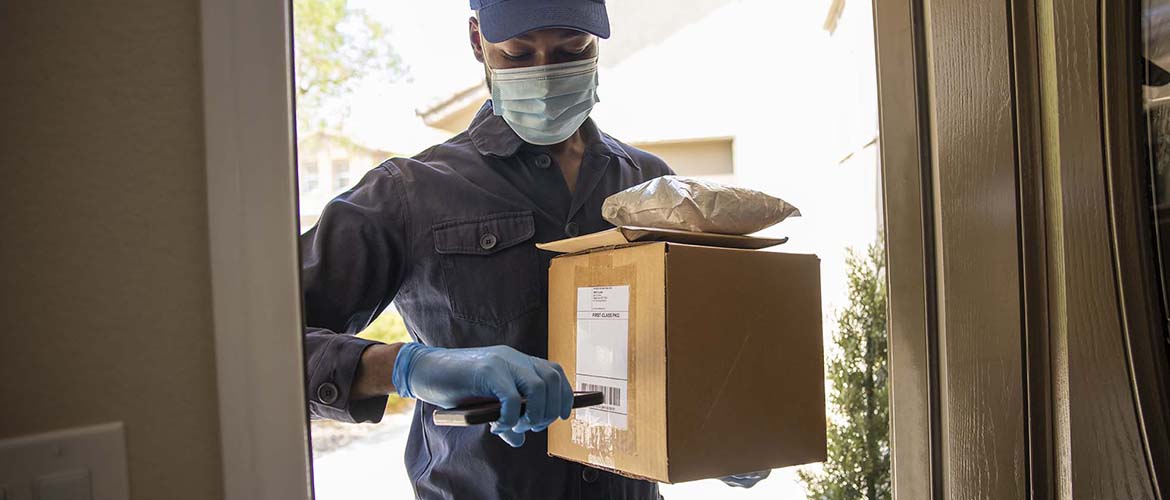As vaccine availability begins to reduce the threat of COVID-19, health care experts are bracing for different crisis: increased diagnoses of preventable cancers.
They know risk of infection from the novel coronavirus led many people to delay getting important health screenings.
To support members during the pandemic, Health Care Service Corporation (HCSC) nearly doubled distribution of free at-home colorectal cancer screening testing kits through its annual home screening initiative. The fecal immunochemical test (FIT) kits now are offered to members of individual and family plans who are at least 45 years old and have not had a colonoscopy. The results are shared only with the participating members and the primary care provider they identified.
“The more options we have, the more accessible we can make colorectal cancer screening to a greater population."
In 2020, HCSC sent more than 48,600 FIT kits to eligible members in Illinois, Montana, New Mexico, Oklahoma and Texas to screen themselves for colorectal cancer while preventing possible infection from COVID-19. Thousands of members took advantage of the opportunity and returned the kits for analysis, and the company is continuing to look for ways to partner with providers to promote the program as an effective method to help screen for, diagnose and treat colorectal cancer.
“2020 was kind of a special year because of the pandemic,” says Hala Ibrahim, HCSC’s quality reporting director. The home testing strategy was among several efforts to help members stay on track with cancer screenings and other preventive care. “Because of stay-at-home orders, you couldn’t even schedule your screening,” she says.
Nearly 23 million adults ages 50 to 75 are overdue for screening, and this year about 53,000 Americans will die from colorectal cancer, the third leading cause of death in the United States for men and women.
With early detection, colorectal cancer can be treated more easily. But symptoms often don’t appear until after the cancer has grown or spread when it becomes more difficult to treat.
The Centers for Disease Control and Prevention generally recommends colorectal cancer screening for adults ages 50 to 75. About 69% of Americans in that group have been screened, according to the agency’s most recent information. But that means millions have not.
Offering options to boost screenings
The FIT kit is one of the least invasive and effective screening tests used to find polyps or colorectal cancer. The convenient home test could substantially improve screening rates and reduce the number of people who schedule in-person colonoscopies.
With a FIT kit, a stick or brush is used to collect a small stool sample, which is returned to a doctor or lab where the sample is checked for blood — an early sign of colorectal cancer. A colonoscopy is recommended as a follow-up test if a FIT detects blood.
The test must be repeated annually.
Studies show the kits can help fill screening gaps. Colorectal cancer screenings dramatically jumped, for example, after researchers provided FIT kits to patients at a Philadelphia community health center. Yet, the effect of in-home colorectal screening test kit initiatives is often limited by modest participation.
About 16% of members who received FIT kits from HCSC returned them for analysis.
“We are proud we were able to screen almost 8,000 members,” Ibrahim says. But she also says the effect could be even greater if more people opted to return the test. The program and HCSC customer service teams are partnering to help eligible members find primary care providers and increase screening. “The requirement to have a primary care provider discourages a large number of members from participating in the program.”
Also, HCSC oncology medical director and thoracic surgeon Dr. Mitch Magee and other company clinicians are developing strategies to educate and encourage providers to offer FIT kits as an option to increase member colorectal cancer screening rates.
Many providers tend to recommend colonoscopies because precancerous polyps can be found and removed during the procedure, he says. However, colonoscopies require pre-procedure preparation, as well as sedation, which can discourage members from getting screened.
“We must identify and fill screening gaps and break down barriers,” Magee says. “The more options we have, the more accessible we can make colorectal cancer screening to a greater population. We have an opportunity to make a difference.”

